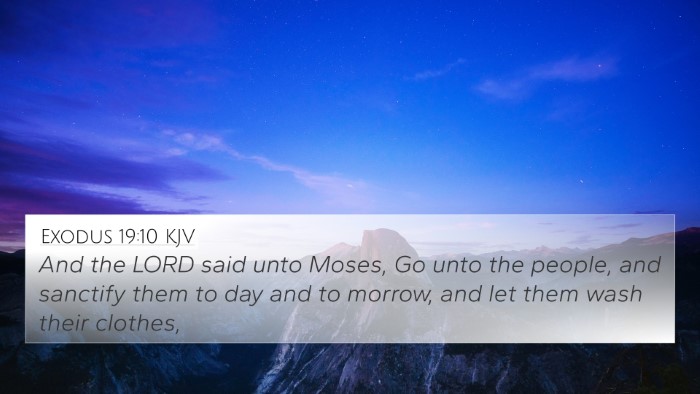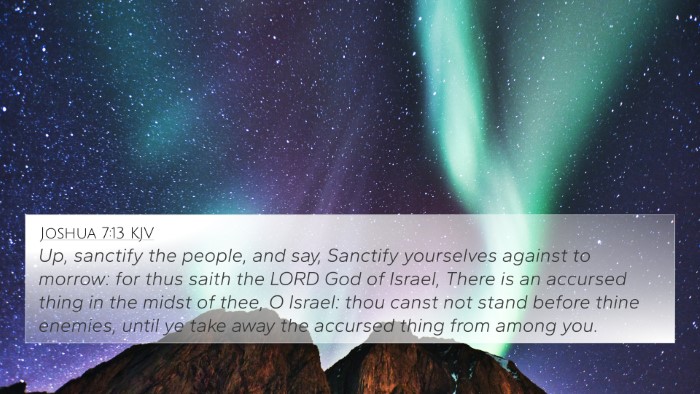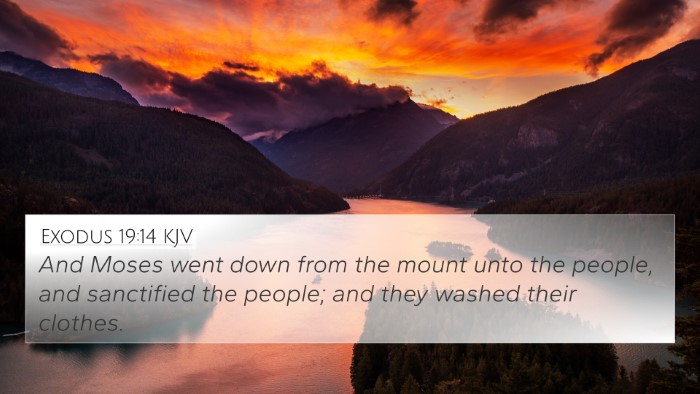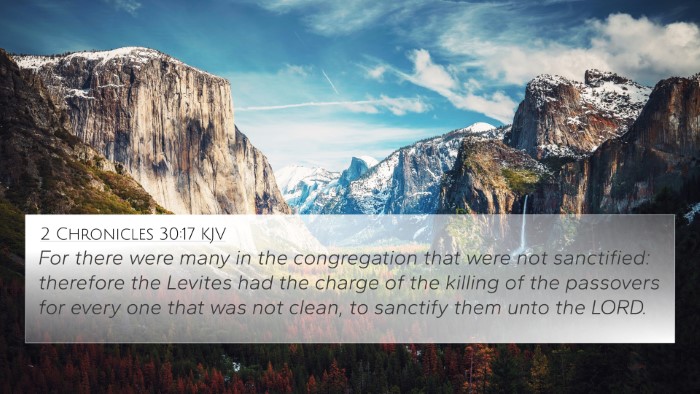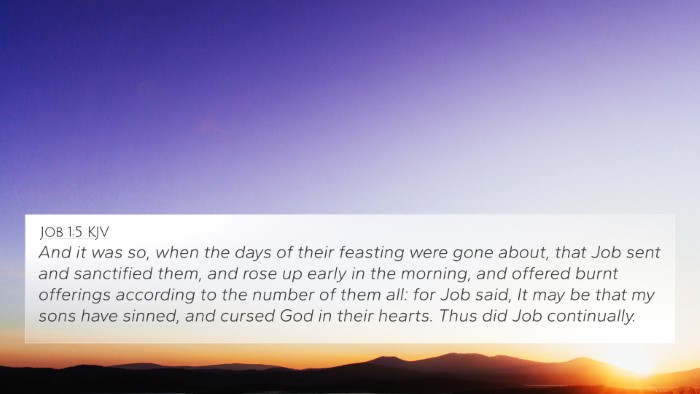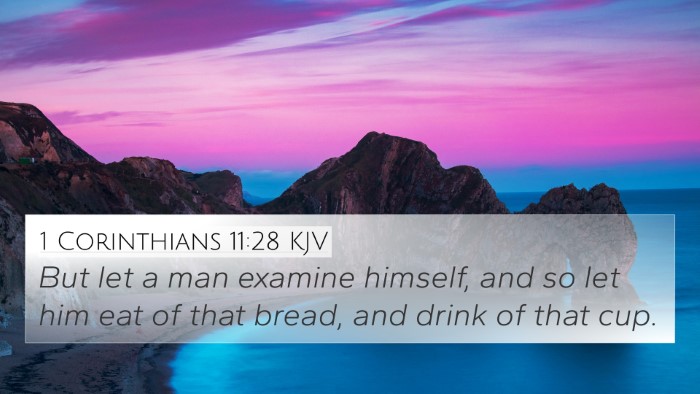Understanding 1 Samuel 16:5
1 Samuel 16:5 states: "And he said, 'Peace be to you; I come to sacrifice to the LORD.
Consecrate yourselves, and come with me to the sacrifice.' And he consecrated Jesse and his sons
and invited them to the sacrifice." This verse marks a significant moment as God directs Samuel to
anoint the next king of Israel, showcasing divine guidance and the importance of preparation for consecration.
Summary of Verse Meaning
This passage evokes themes of divine purpose and the sacredness of God's appointments.
As Samuel approaches Jesse's household, he carries the weight of God's command—signifying clarity
in prophetic calling and the necessity to prepare oneself for divine encounters. Public domain commentaries
reveal essential aspects of this verse.
-
Matthew Henry's Commentary:
Matthew Henry emphasizes God's providence in the choice of David as king.
He underlines that God's appointments do not always align with human expectations.
The notion of consecration indicates a divine call to holiness and readiness to fulfill God’s will.
-
Albert Barnes' Notes on the Bible:
Barnes highlights the significance of approaching God with a prepared heart.
The act of sacrifice symbolizes dedication to God, while the calling to consecrate
oneself implies an outward expression of inner purity and submission to God’s purpose.
-
Adam Clarke's Commentary:
Clarke discusses the implications of Samuel's actions and the importance of family unity in God’s plan.
His remarks on the consecration process stress both physical and spiritual readiness,
emphasizing that divine service requires a clear acknowledgment of God's holiness.
Connections and Cross-References
Exploring the connections between Bible verses enhances our understanding of God's overarching plan.
Here are key cross-references related to 1 Samuel 16:5:
- Exodus 19:10-11: The call for Israel to consecrate themselves before
encountering God on Mount Sinai.
- Leviticus 11:44: God's command for His people to be holy, for He is holy.
- 1 Samuel 10:1: The anointing of Saul, which parallels the anointing
of David, indicating the divine selection of leaders.
- 1 Chronicles 28:9: David's instructions to Solomon to serve God wholeheartedly, illustrating
the continuity of God’s covenant with his people.
- Psalms 51:10: A plea for creating a pure heart, echoing the call to consecration.
- Hebrews 10:22: An invitation to draw near to God with a sincere heart, reinforcing
the importance of spiritual preparation.
- Acts 13:22: A New Testament reference to God's choice of David, highlighting the significance of faithful leadership.
Exegetical Insights
The commandments to "sacrifice" and "consecrate" lay a foundational understanding of biblical worship.
Such practices are not merely ritualistic; they demand a living faith that prepares individuals for
divine service and personal transformation.
Thematic Connections in the Bible
The various themes interwoven in this passage resonate throughout Scripture, marking a continued
dialogue across the Testaments. The concept of sacrifice leads to reflections
on Christ's ultimate sacrifice, inviting comparative studies of Old Testament practices with New Testament
fulfillments.
Conclusion
1 Samuel 16:5 serves as a pivotal verse in understanding the holiness required in pursuing God’s appointed
tasks. By examining this passage alongside its cross-references, one can appreciate the richness
of biblical themes that connect the Old and New Testament narratives, guiding believers towards
a deeper sacrificial life devoted to God.
Tools for Bible Cross-Referencing
Utilizing Bible concordances, cross-reference guides, and comprehensive Bible reference resources can greatly enhance
one’s study, revealing essential links between scriptures and themes crucial to understanding God's message.



